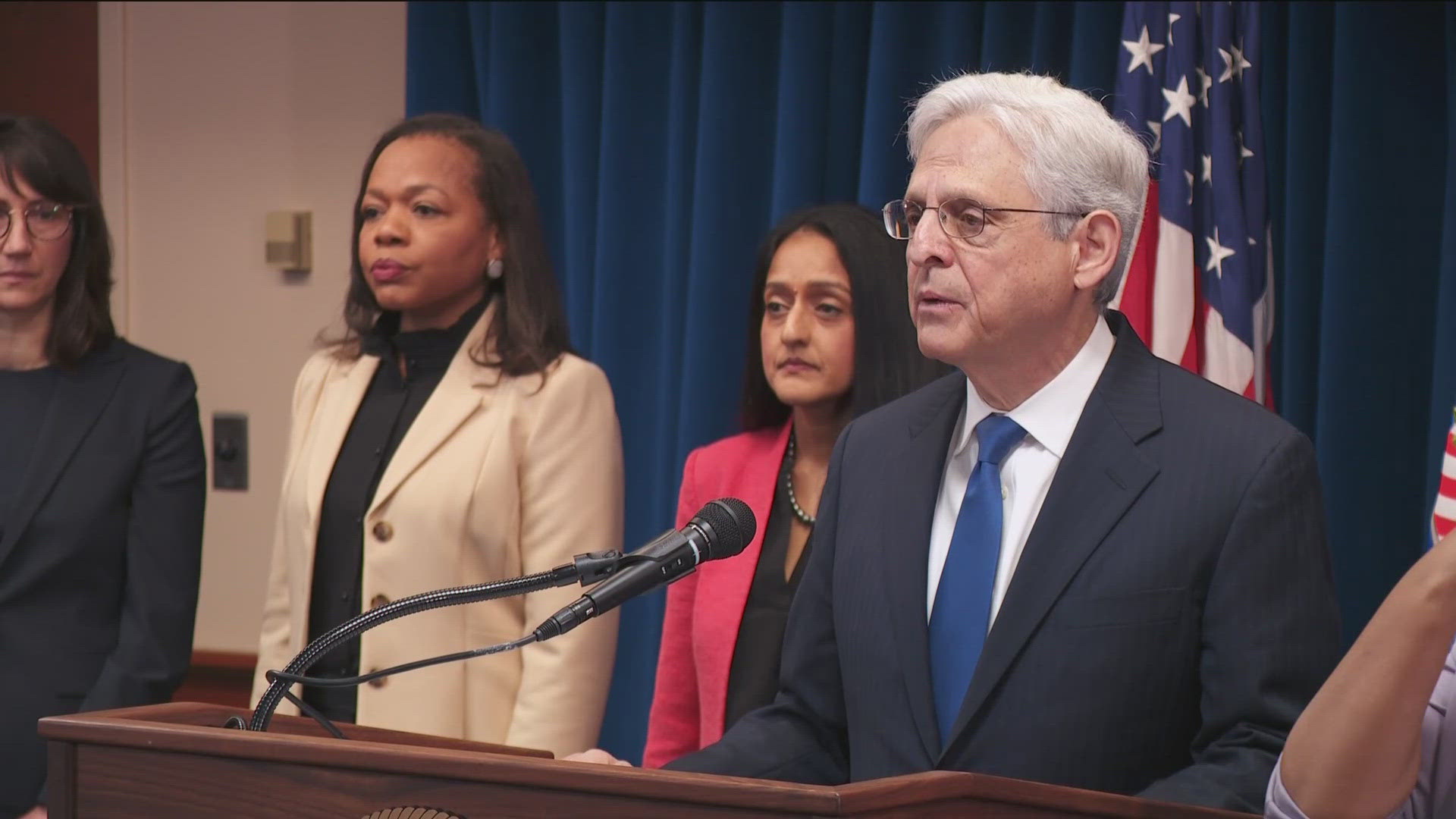MINNEAPOLIS — In March last year, the City of Minneapolis and the Minnesota Department of Human Rights reached a court-enforceable agreement to reform city and police conduct after investigators found both entities engaged in practices violating the Minnesota Human Rights Act.
Effective Law Enforcement For All was selected to oversee the consent decree as an independent body in February this year, and in September released a nearly 90-page, 4-year plan on police cameras, trainings, how reports are taken and other policy changes.
ELEFA president David Douglass says the nonprofit organization is hosting two sessions this week to bring the community up to speed on the plan. The first meeting was Wednesday night at Sabathani Community Center.
The second session will be held at 6 p.m. Thursday at North Community High School.
"We also want to explain how we do what we do … and how to engage the Minneapolis community in this process because that was central to the agreement," Douglass told KARE 11 ahead of the meeting. "Perhaps most important, our goal is to promote understanding so we want to hear back and have plenty of time for people to ask their questions."
The evaluation team talked about the policy review under the new settlement agreement and the timeline associated with it. ELEFA will review the final draft, submitted by the Minneapolis Police Department, and will have 30 days to either approve or provide comments on the policy. In the review process they look to make every requirement in the settlement agreement is implemented, make sure it's clear and concise, and look for ways to integrate best practices for MPD to consider.
For the last six months, they have focused on the backlogged cases. Mary Anne Viverette said in some instances there were 300 backlogged cases, which meant officers weren't getting disciplined and complainants didn't hear back. She said they've had weekly calls about this and plan to eliminate the backlog by March 2025.
Viverette said they found a few reasons for the backlog; turnover, software issues, and when something happens there can be an influx of cases and there might not be enough staff to process all of it.
She said the next step will be to get into case files and look at body-worn cameras to monitor police conduct.
Eric Melancon said they are working on updating the department's body-worn camera policy to make sure it aligns with the agreement. He said they hope to have that done and sent out to officers for training by March.
Douglass said ELEFA will issue a semiannual report in the coming weeks and will hold another community session in four months. He said they'll talk about training and use of force at their next meeting.
This all stems from George Floyd's murder, and a similar settlement is pending with the U.S. Department of Justice after its investigators found city and police conduct violated the constitution and federal law. Both parties agreed to resolve the findings through a court-enforceable consent decree with an independent monitor.
But former President Trump opposed federal consent decrees in his first term, calling them "a war on police," and terminating one in Chicago. It's unclear what will happen in his second term, but Minneapolis is still promising reform.
The Office of Community Safety sent the following statement in response to KARE 11 inquiry:
“While negotiations with the Department of Justice have continued without pause, tonight’s community engagement session hosted by ELEFA is their first opportunity to talk with the people of Minneapolis since their selection as the Independent Evaluator for the MDHR settlement agreement and the release of their Evaluation Plan. This engagement goes to highlight the work well underway to implement the Settlement Agreement with the State. City leadership has been and will remain committed to reforming policing in Minneapolis and building a more just, equitable approach to community safety – regardless of who sits in the White House.”
-Commissioner Todd Barnette, Office of Community Safety
The Minnesota Department of Human Rights shared a similar message:
"The state consent decree between the Minnesota Department of Human Rights and the City of Minneapolis and Minneapolis Police Department is here to stay regardless of what happens at the federal level."
-Spokesperson, Minnesota Department of Human Rights
Douglass said they are hoping to establish a community evaluation liaison council and wanted to get the community's thoughts. They are looking for a committed group of people who will be at every meeting to broadly represent the community, give feedback, and develop connections and skills to sustain charges.

